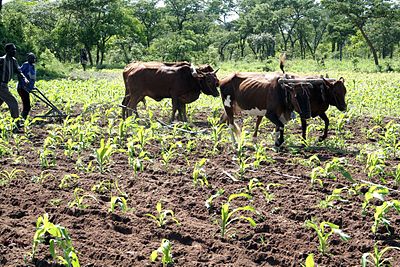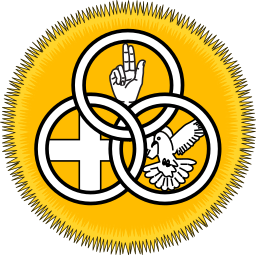Sermon delivered at Lutheran Church of the Cross in Berkeley.
July 9 – Fifth Sunday after Pentecost
“Heavy Burdens”. Text is from Matthew 11:16-19, 25-30
Sermon audio follows:
Good morning to you my sisters and brothers in Christ, saints and sinners, children of God.
(This portion of the sermon was unscripted)
Jesus starts off this conversation about how the children of Israel rejected both John and then Jesus in a seemingly contradictory terms; saying that John had a demon for being an a person who intentionally starved himself and that Jesus was a drunkard and glutton for eating with sinners and tax collectors. Jesus is uplifting the hypocritical nature of his critics, primarily at this time the Pharasees, in that it doesn’t matter how the person is living, as long as they say things contradictory to the way these followers of the old way practiced their faith, then they were subject to whatever creative invective was being hurled at them. All just names and words: Demon-possessed, drunkard and glutton. In a logical debate, these are called ad hominems, where one attacks the messenger rather than the message.
 And I know it becomes easy to put ourselves in Jesus’ shoes, because we’ve all probably experienced at some time that someone who disagreed with us decided to look for some character trait we had, something someone might perceive as a flaw, and use it to try to derail the conversation. But it might be more difficult to see ourselves in the role of those that Jesus was criticizing. People whose world was being turned upside down, people already suffering under a tyrannical empire and now someone has come and is challenging their old ways of thinking about God?
And I know it becomes easy to put ourselves in Jesus’ shoes, because we’ve all probably experienced at some time that someone who disagreed with us decided to look for some character trait we had, something someone might perceive as a flaw, and use it to try to derail the conversation. But it might be more difficult to see ourselves in the role of those that Jesus was criticizing. People whose world was being turned upside down, people already suffering under a tyrannical empire and now someone has come and is challenging their old ways of thinking about God?
But think about this point in Jesus ministry, we have to remember that the context of what Jesus is saying, which is more evident in Matthew’s gospel than any of the others, are such that they he says them after he has done some pretty unsettling and remarkable feats.
Earlier in the Gospel, Jesus has healed a leper. But in doing so he has put his hands on the unclean person before he is healed. Jesus, a holy man, has made himself ritually unclean while at the same time healing him. He then went and brought the servant of a centurion back from the brink of death. An incredible miracle, but done on behalf of not only a gentile but a member of the harsh Roman ruling class.
And then Jesus eats in the company of sinners, further angering those who would wish for a messiah of their own choosing, one who is Jewish through and through, who follows Jewish custom and law to the “T”. This Jesus of Nazareth, who is showing so much potential, is nevertheless not falling in line with their ideals. He is turning the world upside down.
So when the very people Jesus has come to save become embroiled in the politics of the day, making the decision to follow the prevailing thought rather than the obvious messiah there before them.
And yet Jesus loves all of those people anyway. That those things that should be revealed were hidden from the wise. Even as he criticizes us, he invites us to him. Even as we struggle, those of us who have rejected the help that we may be given, he tells us flat out,
“Come to me, all you that are weary and are carrying heavy burdens, and I will give you rest.”
And Jesus, who suffered more than anyone could suffer, who had the greatest burden of all, tells us in no uncertain terms, “My yoke is easy, my burden is light.” What is a yoke? He is not talking about the yellow part of an egg here. What Jesus means is the harness that goes around the neck of oxen in order to pull a plow. How can a yoke even be easy?
But this passage here, these wonderful verses at the end of Matthew, have been considered by some theologians and scholars to be the heart of the gospel message. When Jesus says to take up our cross and follow him, earlier in Matthew, it seems like it is a great struggle but in truth, given the great struggles life has to throw at us, taking up one’s cross is, in fact, the easy decision.
Being a friend to people behind bars is not the easiest thing in the world. I relish my freedom, my sisters and brothers, as I’m sure do you. But also, being a person in recovery, I can tell you that when you are in the grip of dependency on chemicals, you can find yourself justifying the most ridiculous behaviors, and many of the decisions that some people make are so absurd and contrary to what society would expect from us. I can also assure you that when I put a chemical in my body, the conscious contact I feel with God becomes dulled and my ability to rely on God for good decision making becomes diminished if not completely quashed altogether.
But you don’t have to have been addicted to any substance to know that as human beings acting in a willful nature, we can do some pretty messed up things. When the consequences involve some sort of crime, we wind up having our choices taken away from us by the government. And while I have never personally experienced being locked up, I know enough people who have, and believe me, life is absolutely not easy for those people. It’s one of the main reason many people turn to God in those places, to try to seek solace and comfort where so little is to be found.
When I am fighting God and not doing what God wants me to do, I have a hard time of it. When life is causing storms and there seems to be no way out, when stress and difficulties befall me and I don’t understand what to do or how to take the next step, I do not know if I could even continue if I didn’t have God in my life.
Take my yoke upon you and learn from me, Jesus says. And like the ox, Jesus is pulling us, guiding us where we need to go. We are the plow that Jesus pulls, we are the burden that Jesus carries. When Jesus says my yoke is easy, he means that it become easy when we yoke ourselves to him. When Jesus says my burden is light, it is us, our burden that we give him that makes it that much more light for us.
Life, my sisters and brothers is about suffering. Some of us suffer a great deal more than others. But none of us is ever alone in our suffering. Part of being the body of Christ, part of being of service to each other is being able to give up our burdens to each other.
Because this is the easier way, my sisters and brothers. And knowing the good news that God gave a son to teach us and die in our behalf, taking all of the ills of the world, our sins upon him amidst his suffering so that we may live anew, and rising again that we may live under his kind and loving r








